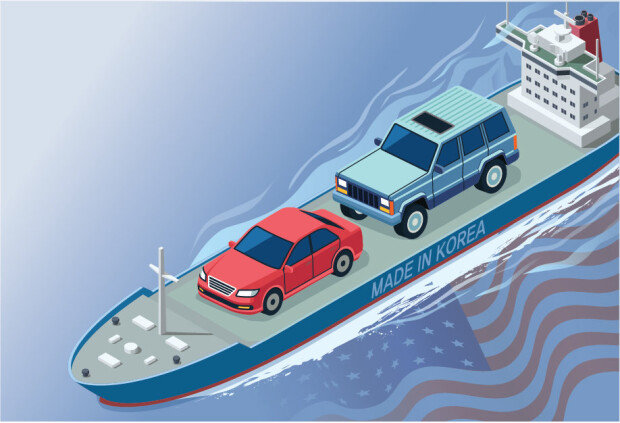President Trump announces to impose tariffs on Korean auto imports
President Trump announces to impose tariffs on Korean auto imports
Posted February. 17, 2025 07:40,
Updated February. 17, 2025 07:40

US President Donald Trump announced on Feb 14 (local time) that he would introduce tariffs on automobiles imported to the US from major countries from April 2. The announcement comes after the earlier announcement that the US would impose a 25% tariff bomb on steel and aluminum starting from March 12, making their intention clear to include automobiles, Korea's key export product, in their tariff list. President Trump also highlighted his intention to impose tariffs on countries that apply value-added tax (VAT) on car purchases.
When reporters at the White House on Feb 14 asked about the timeline for introducing automobile tariffs, President Trump replied that it was “probably April 2,” the day that the Trump administration announced that it would impose ‘mutual tariffs’ on each country. Given this announcement, it is likely that automobile tariffs will also be imposed differently per country. “The United States will likely line up countries with a large automobile-related trade deficit and then pressure them by blaming non-tariff barriers such as value-added tax and various regulations,” said a source with the Korean government.
“Countries imposing VATs are operating a tax system that is much harsher than tariffs, which we consider similar to tariffs,” said President Trump. Value-added tax is a national tax paid by consumers when purchasing a car, which the US views as a policy to protect domestic industries and has emphasized that they will respond with tariffs. Currently, Korea imposes a 10% value-added tax on automobiles. According to the U.S. Department of Commerce, Korea exported 37.4 billion dollars in automobiles to the United States.
Jin-Woo Shin niceshin@donga.com







